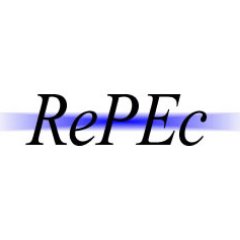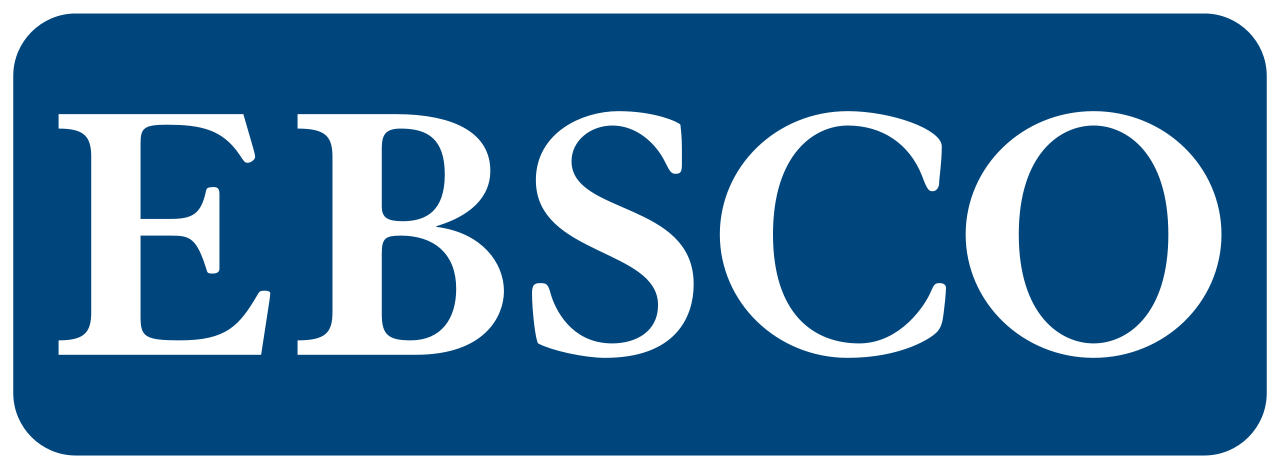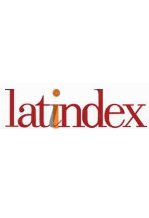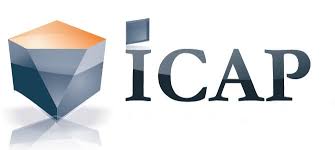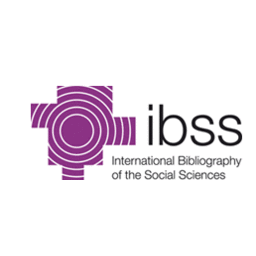DIFERENTES INTERPRETAÇÕES TEÓRICAS ACERCA DA CORRUPÇÃO: UMA PROPOSTA DE ANÁLISE EMBASADA NA VERTENTE TEÓRICA-ECONÔMICA DO VELHO INSTITUCIONALISMO EVOLUCIONÁRIO
Keywords:
agentes; corrupção; evolucionária; governos; institucionalismoAbstract
This article sought to demonstrate and analyze what are the main definitions of corruption constantly found in the literature. In addition, it was pointed out that the usual definitions and those with affinities in relation to the classical-utilitarian theoretical current have significant limitations. Be they in the definition itself, in the concept of corruption, or in the analyzes that this makes possible. Based on this, it was suggested that the evolutionary approach originating from institutional economics, pioneered by the works of Thorstein Veblen, demonstrates a greater degree of adequacy and efficiency by being more visibly closer to reality, thus enabling empirical analyzes with a greater degree of robustness and clarity.
Downloads
References
ARIELY, Dan; JONES, Simon. The honest truth about dishonesty. New York: Harper Collins Publishers, 2012.
BECKER, Gary S. Crime and punishment: An economic approach. In: The economic dimensions of crime, London: Palgrave Macmillan, 1968, p. 13-68.
BREI, Andrade Z. Corrupção: dificuldades para definição e para um consenso. Revista de Administração Pública, Rio de Janeiro, v. 30, n. 1, 1996, p. 64-77.
BROWN, Ed; CLOKE, Jonathan. Critical perspectives on corruption: an overview. critical perspectives on international business, v. 7, n. 2, 2011, p. 116-124.
EUBEN, J. Peter. Corruption. In Terence Ball, James Farr & R. L. Hanson (Eds), Political innovation and conceptual change, Cambridge: Cambridge University Press, 1989, p. 220–46.
FAVORATO, Diego. G.; COLOMBO, Arthur. O.; SARTORIO, Sarah. G. P. KEYNES E O PRINCÍPIO DA DEMANDA EFETIVA: REFUTAÇÃO DA LEI DE SAY, DETERMINAÇÃO DAS EXPECTATIVAS E NATUREZA DO EQUILÍBRIO. Revista de Economia Mackenzie, v. 17, 2020, p. 51-72.
FERES JÚNIOR, J. Interesse público. In: Corrupção: ensaios e crítica, Belo Horizonte: UFMG, 2008, p. 163-172.
FILGUEIRAS, Fernando. A tolerância à corrupção no Brasil: uma antinomia entre normas morais e prática social. OPINIÃO PÚBLICA, Campinas, vol. 15, nº 2, novembro, 2009, p. 386-421.
FLETCHER, Clare; HERRMANN, Daniela. The internationalisation of corruption: Scale, impact and countermeasures. Gower Publishing, Ltd., 2012.
FRIEDRICH, Carl J. Corruption Concepts in Historical Perspective. In: Arnold J. Heidenheimer & Michael Johnston (Eds), Political corruption: concepts and contexts. New Brunswick: Transaction Publishers, 2002, p. 15–24.
GARDINER, John, A. Defining Corruption. In: Arnold J. Heidenheimer & Michael Johnston (Eds), Political corruption: concepts and contexts. New Brunswick: Transaction Publishers, 2002, p. 25–40.
GIBBONS, K. M. Towards an attitudinal definition of corruption: Evidence from a survey of Canadien university students. In: International Political Science Congress, Paris. Reprinted as ‘Variations in attitudes toward corruption in Canada’in AJ Heidenheimer, M. Johnston e VT LeVine (orgs.) (1989) Political Corruption: A Handbook, New Brunswick, NJ: Transaction Publishers. 1985, p. 165-171.
GUIMARÃES, Juarez. Interesse público. In: Corrupção: ensaios e crítica, Belo Horizonte: UFMG, 2008, p. 173-178.
HEIDENHEIMER, Arnold J. Perspectives on the Perception of Corruption. In: Arnold J. Heidenheimer & Michael Johnston (Eds), Political corruption: concepts and contexts, New Brunswick: Transaction Publishers, 2002, p. 141–154.
HERSCOVICI, Alain. Irreversibilidade, incerteza e teoria econômica reflexões a respeito do indeterminismo metodológico e de suas aplicações na ciência econômica. Estudos Econômicos (São Paulo), v. 34, 2004, p. 805-825.
HINDESS, Bary. Introduction: How should we think about corruption?. In: Corruption: Expanding the Focus, Manuhuia Barcham, Barry Hindess and Peter Larmour (eds), Canberra, Australia: ANU E Press, 2012, p. 1-24.
HODGSON, Goffrey. M.; JIANG, Shuxia. The Economics of Corruption and the Corruption of Economics: An Institutionalist Perspective. Journal of Economic Issues, v. 41, n. 4, 2007.
JAIN, Arvind K. Corruption: A Review. Journal of Economic Surveys, Malden, Main St., v. 15, n. 1, 2001, p. 71-121.
JOHNSTON, M. Political corruption and public policy in America. Monterey, Brooks/Cole Publishing Company, 1982.
LEFF, N. H. Economic development through bureaucratic corruption. In: Arnold J. Heidenheimer & Michael Johnston (Eds), Political corruption: concepts and contexts. New Brunswick: Transaction Publishers, 2002, p. 307-320.
MACHADO, Júlio C. Um estudo semântico enunciativo da corrupção em dicionários e documentos governamentais. Alfa, São Paulo, v. 54, n. 1, 2010, p. 145-175.
MOKYR, Joel. Is technological progress a thing of the past?. EU-Vox essay posted September 8, 2013.
MULGAN, Richard. Aristotle on Legality and Corruption. In: Corruption: Expanding the Focus, Manuhuia Barcham, Barry Hindess and Peter Larmour (eds), Canberra, Australia: ANU E Press, 2012, p. 25-36.
O’HARA, Phillip A. Political Economy of Systemic and Micro-Corruption Throughout the World. Journal of Economic Issues, v. 48, n. 2, 2014, p. 279-307.
PETERS, John J.; WELCH, Susan. Gradients of Corruption in Perceptions of Americans Public Life. In: Arnold J. Heidenheimer & Michael Johnston (Eds), Political corruption: concepts and contexts, New Brunswick: Transaction Publishers, 2002, p. 155–172.
ROSE-ACKERMAN, Susan. When is Corruption Harmful ?. In: Arnold J. Heidenheimer & Michael Johnston (Eds), Political corruption: concepts and contexts. New Brunswick: Transaction Publishers, 2002, p. 353-374.
SARTORIO, Sarah. G. P.; COLOMBO, Arthur. O.; FAVORATO, Diego. G. Os determinantes da taxa de juros: uma interpretação de Keynes e a refutação da teoria Neoclássica. PESQUISA & DEBATE (SÃO PAULO. 1985. ONLINE), v. 33, 2022, p. 122-147.
SAXONHOUSE, Arlene W. To Corrupt: The ambiguity of the language of corruption. In: Corruption: Expanding the Focus, Manuhuia Barcham, Barry Hindess and Peter Larmour (eds), Canberra, Australia: ANU E Press, 2012, p. 37-52.
SCOTT, James C. Comparative political corruption. Prentice Hall, 1972.
VEBLEN, Thortein B. The instinct of Workmanship and the Irksomeness of Labor. American Journal of Sociology, v. 4, n. 2, 1898b, p. 187-201.
VEBLEN, Thortein B. Why Is Economics Not an Evolutionary Science? , Quarterly Journal of Economics, v. 12, n. 3, julho, 1898, p. 373–97,
VEBLEN, Thortein B. The theory of leisure class. New York: Penguin Books, 1899.
VEBLEN, Thortein B. [1904]. Teoria da empresa industrial. 1. ed. Rio de Janeiro: Globo, 1966.
WORLD BANK. World Development Report 2017: Governance and the Law. Washington, DC, 2017: World Bank. doi:10.1596/978-1-4648-0950-7. License: Creative Commons Attribution CC BY 3.0 IGO.
Downloads
Published
How to Cite
Issue
Section
License
Copyright (c) 2023 Arthur Osvaldo Colombo, Eduardo

This work is licensed under a Creative Commons Attribution-NonCommercial 4.0 International License.
The copyright of papers published in the Revista de Economia Mackenzie belongs to the authors, who grant to the Mackenzie Presbyterian University the exclusive rights to publish the content. Total or partial reproduction is prohibited without due authorization of the Editorial Committee, except when it is previously authorized.
